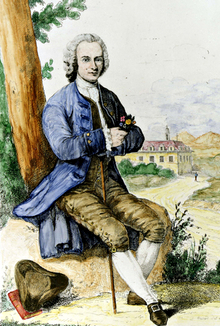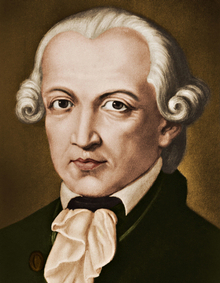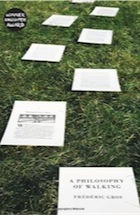 |
| Walking is ‘life scoured bare’, says Frédéric Gros, a way of ‘experiencing the real’. Photograph by Rannjan Joawn |
Some of the finest thinkers in history were also enthusiastic walkers. In his surprise bestseller, Frédéric Gros uses philosophy to show how walking can bring about a sense of peace. So why is he so conflicted about life?
"It is a sunny spring Sunday and – joy! – I am off to Paris to go for a walk. Not any old walk, but a walk with a man who really knows about walking: Frédéric Gros, a professor of walking. A philosopher of walking.
Strictly speaking, he's actually a professor of philosophy who writes about walking, but this is nitpicking. What do I care? I love walking. Nothing gives me greater pleasure than walking uphill, for hours, in order to sleep under some flimsy piece of nylon fabric and then do it all again the next day.
This particular walk is not up a mountain, it's in the Bois de Vincennes, Paris's largest green space, but still. I am looking forward to a lungful of fresh air and the kind of insightful aperçusthat possibly are available only to a Frenchman with a secure academic position and a command of one of the more expressive Latinate languages.
Walking is not sport, he says, in the first line of his book, A Philosophy of Walking. Sport is a discipline, "an ethic, a labour". It is a performance. Walking, on the other hand, "is the best way to go more slowly than any other method that has ever been found". If you want to go faster, he says, don't walk. Do something else: drive, slide, fly.
I am looking forward to going more slowly. Though I am worried about my footwear. I am wearing Nike trainers. Are they too sporting? Gros seems as if he might be more of a leather brogues sort of man. He makes a jibe at those who try to commodify walking and sell it back to us as "trekking". Who insist on "incredible socks". And special trousers with too many pockets.
My trousers have the usual number of pockets. And reading his book has made me long to be in a wild place with nothing to do but walk. I want to discuss the observations from his book: that walking is an escape from the idea of identity; that there is a kind of serenity that comes with simply following a path; that walking is a form of pure living.
This is the plan, though the first indication that things may not go exactly as I imagine comes as I wait in line for the Eurostar. Ping! An email lands in my inbox: "Carole, could you send me some questions you will ask before we meet? If I could prepare some, I would be less stressed."
Stressed? This doesn't seem right. Gros's book, a surprise bestseller in France, talks of walking as a form of "life scoured bare"; as a way of "experiencing the real". Its pages are filled with calm reflections on the joys of moving slowly. He just doesn't sound as if he should be the stressy type.
"It is the English," he says when I finally meet him in a cafe opposite the Bois de Vincennes. He has a sheaf of printed out pages – answers to questions I sent him earlier, a glass of rosé on the go ("I am nervous. Coffee will not help") and an amused PhD student who he's brought along for what he calls "translation help", though I suspect "moral support" may be closer to the mark.
Don't be stressed, I tell him. I loved the book. It's an examination of the philosophy of various thinkers for whom walking was central to their work – Nietzsche, Rimbaud, Kant, Rousseau, Thoreau (they're all men; it's unclear if women don't walk or don't think) – and Gros's own thoughts on the subject. It's a passionate affirmation of the simple life, and joy in simple things. And it's beautifully written: clear, simple, precise; the opposite of most academic writing. But, when I say this to Gros, he waves his hand. "I think it is probably the translation. I don't think it was so well written in French." And he takes a nervous swig of his rosé.
Why are you nervous, I ask. You must have done interviews before. "They were in French," he says. "And also… Um… I'm not so sure I am interesting."
It seems Gros hasn't got to grips with playing the sort of media-academic demi-god that these situations require. He's one of the world's leading authorities on Foucault, and later Arianna, his PhD student, lets slip that he became a full professor at 30, which is practically unheard of, especially in the arts. And he has the sort of looks – tall, dark, Gallic – that could easily lend themselves to playing the older love interest in a TV medical drama. But there he is, nervously glugging his wine and looking across the table at me in a state of mild terror.
The cafe is noisy, and we decide to head out on our walk. I am desperate to deflect him from his pages of carefully prepared answers, and I figure interviewing him on the hoof might be the best way. But the Bois is busy. The Sunday strollers are out in force.
"This is the problem with walking in the city," says Gros. There are clouds of midges and gaggles of children and we end up circling a small patch of scrubby ground with overflowing litter bins. "I like to walk for several hours," he says. "But in Paris…" We end up retreating to a bench.
As a philosopher, his interest is in "ordinary things", he says. In Britain, academic philosophy is, largely, analytical philosophy. It's concerned with logic, with language. Whereas in France, he belongs to "a new generation that is concerned with the… quotidien. The everyday."
And you see the philosophy of walking as part of the philosophy of the everyday?
"Yes. It is still looking at the questions of eternity, solitude, time and space… But on the basis of experience. On the basis of very simple, very ordinary things."
He'd always enjoyed walking but it was only when he started his philosophical studies that Gros started noticing how many great philosophers were also great walkers. "That is, it was not just that walking was a distraction from their work. It was that walking was really their element. It was the condition of their work."
And it was from this that he started to think about a book. Each philosopher leads to a reflection on different subjects. So Rimbaud is the starting point for Gros's thoughts on escape. Nerval on melancholy. Rousseau, who claimed to be unable to work, or even think, when not walking, on the idea of being in a state of nature. And, my favourite, Thoreau, the author of the first philosophical treatise on walking, whose writing Gros quotes on simplicity and frugality and wilderness and the difference between profit and benefit.
Walking is of no profit, it is only benefit, he says. Though the best quote of his is about when considering any course of action, one should ask: could someone do it in my place? And if the answer is yes, give it up.
"Yes. You can be replaced at your work, but not for your walk. Living, in the deepest sense, is something that no one else can do for us."
Walking, says Gros, is "exploring the mystery of presence. Presence to the world, to others and to yourself... You discover when you walk that it emancipates you from space and time, from… vitesse."
Speed?
"Yes, speediness. It emancipates you from speediness. And Rousseau says in his Confessions, when you walk all is possible. Your future is as open as the sky in front of you. And if you walk several hours, you can escape your identity. There is a moment when you walk several hours that you are only a body walking. Only that. You are nobody. You have no history. You have no identity. You have no past. You have no future. You are only a body walking."

It's the kind of observation that, possibly, works better with a French accent. But I buy it. I love everything about walking. The meditative state that it induces. The dog tiredness at the end of the day. The simply being in beauty. Or, as Gros would have it: "The sedimentation of the presence of the landscape in your body."
Is there a school of philosophy that thinks that walking is not a fit subject to study? "Yes! Yes, I do not think my colleagues would consider this a serious academic book. It is too transparent.
"And I tried to evoke some very serious philosophers such as Nietzsche but the questions I wanted to ask were not, 'What is the soul?' or, 'What is the relation between body and space?'
"My questions were, 'Where have they walked?' 'How have they walked?' 'How many hours per day have they walked?' I tried to see if their style of walking could be a manifestation of their thought. So, for example, you have Kant with his stroll. Every day the same stroll. The same time, the same place…"
He comes across as a very boring man.
"He is!"
Does that also come through in his philosophy?
"We can say that there is a discipline at the forefront of it, yes."
Nietzsche, on the other hand, is very unboring. He was the first philosopher Gros discovered. And the one who persuaded him to study philosophy.
What prompted you to start reading Nietzsche? Were you a teenager?
"Yes!"
Were you a depressed teenager?
"Yes!"
What effect did Nietzsche have?
"There is an energy in Nietzsche's works and this helped me. You have the same energy in the act of walking. You need energy when you have to walk for several hours."
Have there been points in your life where you've found walking helpful to your mental state?
"Absolutely. There is an element of repetition in the act of walking where you can forget. And there is a tiredness. A peacefulness. I think that when you are really alone you have a fragility. The feelings are more intense. You have more of the feeling of the eternity of things. There are moments of vibration between your own body and the landscape."
You're sounding like a hippy now, Frédéric, I say.
"I am!"
Now the Earth is vibrating.
"You are right!"
Not that this is necessarily a bad thing. I love the bit in the book where he writes about the act of packing a rucksack and the perpetual question that you find yourself asking. "Is it necessary?" On my last hiking trip, I tell him, I weighed my T-shirts to find the lightest ones. I weighed my knickers. I sawed my toothbrush in half with a bread knife. (I admit it: this was a step too far.) But thinking about putting something in a rucksack and schlepping it up a mountain on your back is quite a good test for thinking about whether you really do actually need something, isn't it, I say?
"It is."
Do you manage it? Does that lesson come through when you're at Ikea?
"I try to have that same mental attitude every day. But it is difficult. The problem is that I…"
"Forget?"
"No, I don't forget. I lie. I say, 'Oh yes, this is very necessary?'"
What? Like a sports car? You say, 'Yes, it's essential. I need that Ferrari?'
"Not a sports car but… Other things."
One of the things that comes across most strongly in the book is a sense of escape. The freedom of leaving things behind. It sounds as if an academic philosophy department is a place to get away from. Is that true?
"Quoi?" He looks confused and then Arianna, the PhD student, translates and they nearly fall off the bench laughing.
"Yes! I'm not sure you have to write this. But I have a serious problem with academics. I think that I have imposter syndrome. I feel myself an imposter in philosophy. I think this book about walking is the first way to discover it. I'm writing another book about disobeying. I think there is a link between walking and disobedience. I am writing about disobedience and preparing myself to disobey."
Disobey what?
"Academia."
To leave it?
"If I have the courage, yes."
Gros didn't set out to become an academic. He went to Mexico City for two years and taught French. "And then I came back and I tried to find some interesting things in my own life… But I didn't know any! Nothing. It is very embarrassing for me."
So you thought you'd read about the interesting lives of others?
"Yes. When I tried to write this book I wrote chapters about these elders because I think their lives are interesting. If my life were interesting, I think I wouldn't have to write. If you write, it's because your life isn't important." He looks at me embarrassed. "Maybe it is different for you?"

I enjoy meeting people who are more interesting than me, I tell him. And then I ask him about the apogee of his book, his definitive walking experience, when he talks about how, in the mountains of the Cévennes, his favourite spot, in a period of fine weather, he simply abandoned his rucksack. He spent two days walking, alone, carrying absolutely nothing.
"It was this feeling of lightness. This fragility. There is nothing between you and nature."
Except being a bit hungry?
"A bit."
There is a quote from Thoreau in the book, where he says that it is not the tyranny of public opinion that traps us. Instead, we are shackled by our own judgments of ourselves. Do you believe that?
"I do."
So what is the judgment that you have of yourself that shackles you?
"This is difficult. Yes, yes. No, no, no. Just one moment. I have a judgment. Yes…"
And he rolls his eyes and for a long minute he just stares into space and thinks. Arianna and I sit and watch him.
"No, no, no, I am thinking."
We wait for another long minute. This is great, I say. I interview lots and lots of people and they very rarely ever think before giving an answer. I think this may be a first.
"It is a terrible question."
"It is a terrible question. But you're a philosopher, Frédéric. You're supposed to be thinking about this stuff. It's your job."
"Yes, it is my job. So… Yes, the problem for me is that the books I have written have allowed me to learn to know, but the problem is what they have masked. You see. I know that the books I have written allow me to learn lots of things. But they have masked the problems."
You mean that they have masked your real thoughts or feelings? Or they have masked you from living life.
"Yes. From living. From living life."
So, do you think that you personally would have been better off going for a walk than writing a book about walking?
"Yes… But… I had not sufficient courage."
Oh dear! Maybe you need to go for a really big walk. Three months or something. Is that something you'd like to do?
"Yes. Of course. But life is… complicated."
Isn't that the thing, I say – that there are probably a lot of people who will read the book and say, 'Oh, it's all very well to talk about communing with nature, but I've got three kids and a mortgage and a wife.'
"Yes, and me, too."
In fact he has two children, now teenagers, and "they used to love to walk. I tried to teach them the joie de la marche. They walked seven, eight, nine hours. I led them everywhere. But now… they refuse."
They will come back to it, I say. But then I've started saying all manner of comforting things to the philosopher of walking, including telling him that he needs to go for a walk. "Are you going somewhere nice this summer?"
"No. I don't think. No."
Maybe walking can be a state of mind in your head, I suggest. Maybe the idea of going for a walk can be as powerful as actually going for a walk?
"No, no, no. I think that the act of walking… stays essential."
He has started to look depressed. So, you don't manage to walk much on a day-to-day basis? He shakes his head. Maybe you ought to get a dog, I say. Then you have to walk even on a wet Tuesday in February.
We sit in silence for a bit.
So, Frédéric, you've written a whole book about the simple life and joy of walking because your life is too complicated to actually go walking? Is this what happened?
"Yes… But it is more complicated than that."
We finish the interview and go and drink wine. Gros looks done in. Arianna looks amused.
"You see," he says. "I was right to be nervous! French journalists do not ask these sort of questions. I… feel maybe I have a crise tomorrow."
Oh dear. I hope not. Just read your book, I tell him. Go for a walk. Disobey."









Sem comentários:
Enviar um comentário